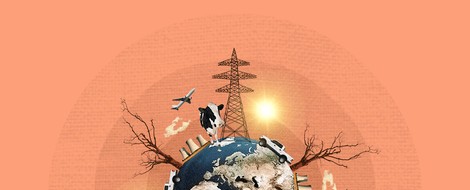Your podcast discovery platform
Curious minds select the most fascinating podcasts from around the world. Discover hand-piqd audio recommendations on your favorite topics.

piqer for: Climate and Environment Global finds Globalization and politics
I'm a freelance journalist, currently based in Madrid. I used to be a News Producer at CNBC in London before, but I thought a little bit more sun might do me good. Now I write for several news organizations, covering a range of topics, from Spanish politics and human rights for Deutsche Welle to climate change for La Marea.
Your Food Is Worse For Climate Than Your Car
A few days ago, fellow piqer Andrea Chu mentioned how bad climate change can be for our food system. This is not a one-way street, as it turns out, and what you eat can also be pretty bad for this global conundrum. And no, it's not just reducing meat consumption (although that is a great place to start).
When we think about food in a globalized world, the questions go way beyond what we eat. We should also understand where and how we eat it, and where and how it is grown. And this is what this article, written for The Guardian by a winner of the 2017 Africa Food prize is all about.
First things first. The opening is already great:
Did you know that what’s on your plate plays a larger role in contributing to climate change than the car you drive?
That's right. Actually, for a person like me (young, male, without kids, without a car, living in a European capital) food is the most important contributor to my carbon footprint. I recently confirmed this using this calculator.
But the point here is not to chastise you for not dropping the bacon. The point is understanding why global food systems are so important for our climate action. As it turns out, it may be better to eat bacon grown locally than beans grown on another continent.
But what is a food system?
Everything from seed and soil to the supermarket to the plate to the landfill. Food systems include the growing, harvesting, processing, packaging, transporting, marketing, consumption, and disposal of food and food-related items.
The author develops her theory, going over issues such as deforestation, soil management and waste reduction. And she does it keeping the big picture in mind, which is not easy. She then finishes with a solution. An old one, but more necessary than ever:
Just as there’s no universal crop that grows everywhere, there’s no “one size fits all” model food system to implement across the world. A broader systems-wide perspective is necessary if there is any hope for truly transformative change.
